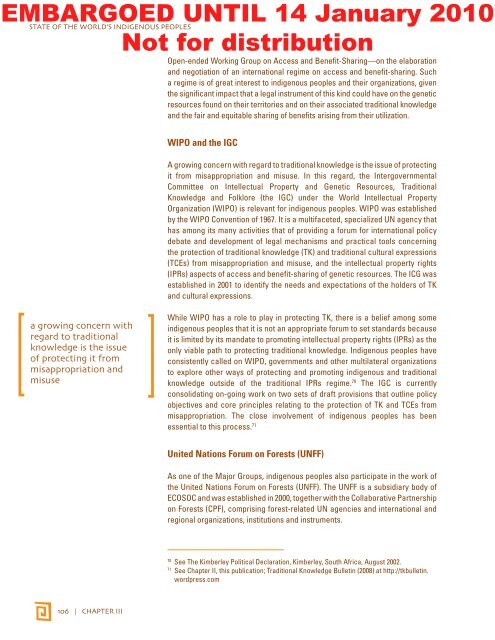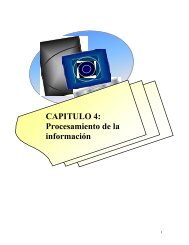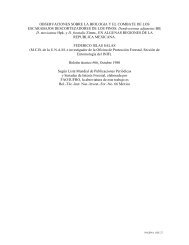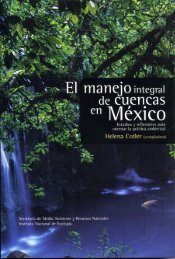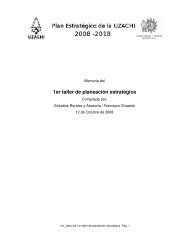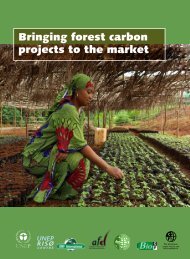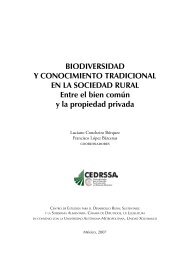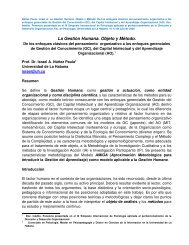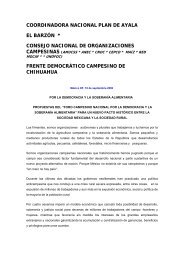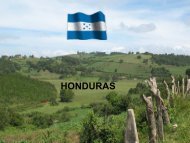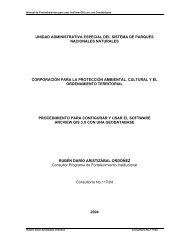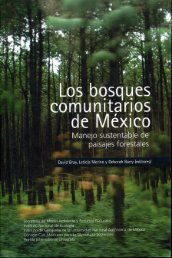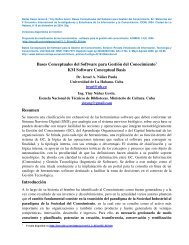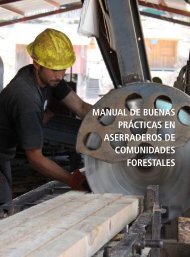STATE OF THE WORLD's INDIGENOUs PEOpLEs - CINU
STATE OF THE WORLD's INDIGENOUs PEOpLEs - CINU
STATE OF THE WORLD's INDIGENOUs PEOpLEs - CINU
- No tags were found...
You also want an ePaper? Increase the reach of your titles
YUMPU automatically turns print PDFs into web optimized ePapers that Google loves.
EMBARGOED UNTIL 14 January 2010<strong>STATE</strong> <strong>OF</strong> <strong>THE</strong> WORLD’S INDIGENOUS PEOPLESNot for distributionOpen-ended Working Group on Access and Benefit-Sharing—on the elaborationand negotiation of an international regime on access and benefit-sharing. Sucha regime is of great interest to indigenous peoples and their organizations, giventhe significant impact that a legal instrument of this kind could have on the geneticresources found on their territories and on their associated traditional knowledgeand the fair and equitable sharing of benefits arising from their utilization.WIPO and the IGCA growing concern with regard to traditional knowledge is the issue of protectingit from misappropriation and misuse. In this regard, the IntergovernmentalCommittee on Intellectual Property and Genetic Resources, TraditionalKnowledge and Folklore (the IGC) under the World Intellectual PropertyOrganization (WIPO) is relevant for indigenous peoples. WIPO was establishedby the WIPO Convention of 1967. It is a multifaceted, specialized UN agency thathas among its many activities that of providing a forum for international policydebate and development of legal mechanisms and practical tools concerningthe protection of traditional knowledge (TK) and traditional cultural expressions(TCEs) from misappropriation and misuse, and the intellectual property rights(IPRs) aspects of access and benefit-sharing of genetic resources. The ICG wasestablished in 2001 to identify the needs and expectations of the holders of TKand cultural expressions.a growing concern withregard to traditionalknowledge is the issueof protecting it frommisappropriation andmisuseWhile WIPO has a role to play in protecting TK, there is a belief among someindigenous peoples that it is not an appropriate forum to set standards becauseit is limited by its mandate to promoting intellectual property rights (IPRs) as theonly viable path to protecting traditional knowledge. Indigenous peoples haveconsistently called on WIPO, governments and other multilateral organizationsto explore other ways of protecting and promoting indigenous and traditionalknowledge outside of the traditional IPRs regime. 70 The IGC is currentlyconsolidating on-going work on two sets of draft provisions that outline policyobjectives and core principles relating to the protection of TK and TCEs frommisappropriation. The close involvement of indigenous peoples has beenessential to this process. 71United Nations Forum on Forests (UNFF)As one of the Major Groups, indigenous peoples also participate in the work ofthe United Nations Forum on Forests (UNFF). The UNFF is a subsidiary body ofECOSOC and was established in 2000, together with the Collaborative Partnershipon Forests (CPF), comprising forest-related UN agencies and international andregional organizations, institutions and instruments.70See The Kimberley Political Declaration, Kimberley, South Africa, August 2002.71See Chapter II, this publication; Traditional Knowledge Bulletin (2008) at http://tkbulletin.wordpress.com106 | CHAPTER III


